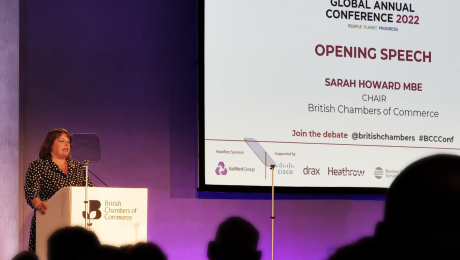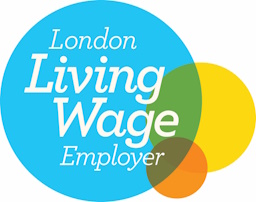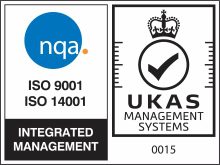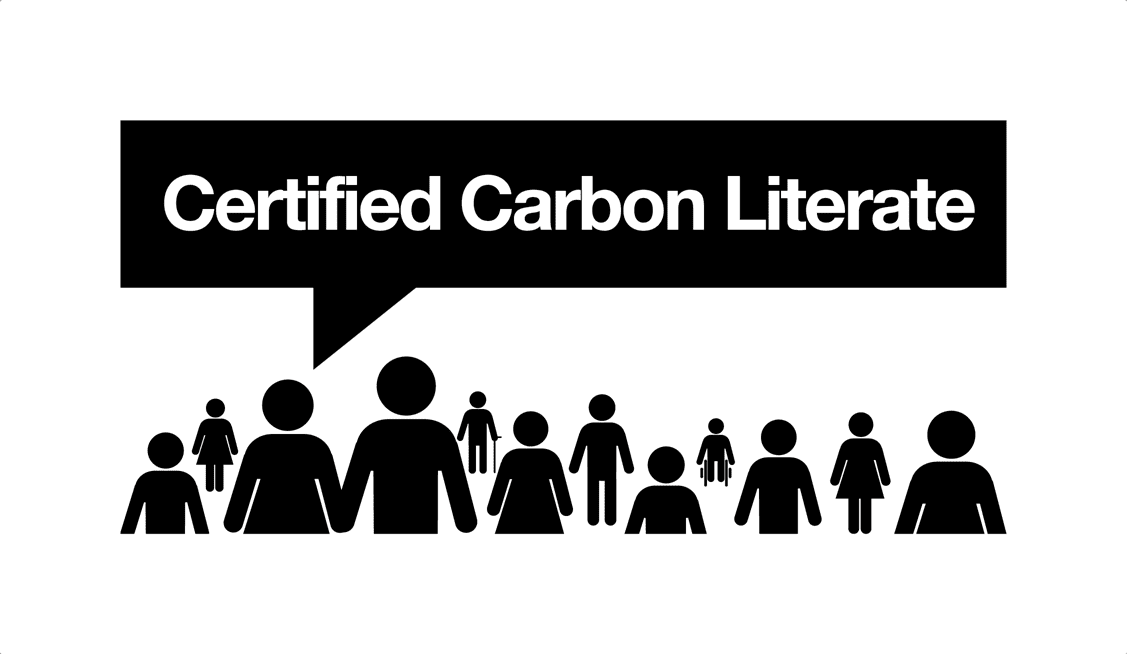Sara’s Blog: British Chambers of Commerce Annual Global Conference
On Thursday this week I attended the British Chambers of Commerce (BCC) Global Annual Conference in London with five of our patrons; LilaConnect; RSM; Staffordshire University; JPR Group and Newcastle & Stafford College Group.
After a turbulent few years, the conference was an opportunity for business leaders from the UK and around the world to come together and look to a more sustainable and responsible future.
There was a feel at the conference that none of us were here for platitudes and bland statements. We were to challenge and get frank answers on how business and government can work together to achieve stability, growth, and competitiveness.
Through thought-provoking discussions, talks and peer-to-peer sessions and networking, delegates were able to explore and debate how we can individually and collectively rise to the challenges ahead, with a particular focus on:
- PEOPLE – Developing talent now and for the future
- PLANET – Boosting a green global economy
- PROGRESS – Seizing new opportunities
Away from the sessions there was networking time for delegates and a showcase BCC’s dynamic network of UK and overseas Chambers and strategic partners.
In the opening keynote, BCC Director General Shevaun Haviland was in conversation with Chancellor of the Exchequer Rishi Sunak. Shevaun pressed Mr Sunak on how the government can improve support for businesses in these testing times. Lower taxes and less bureaucratic burden being priorities as well as keeping costs down to maintain competitiveness in a global market.
Shevaun Haviland spoke about the missed opportunity of the Chancellor’s Spring Statement. We saw some support for business, but the lack of a clear strategic direction meant it did not give clarity or confidence.
This must change as we are on limited time. The Government has until the autumn budget to reset, rethink, and get their house in order.
We all know that businesses are facing unprecedented challenges, exacerbated by the conflict in Europe, which follows a once-in-a-lifetime pandemic that literally brought life as we know it to a halt. Increasing cost of raw materials over last summer, supply chain and shipping issues, problems in recruiting people, and by this March spiralling energy prices.
Inflation is at a 40-year high, at over 9 percent and interest rates are climbing, dampening business confidence and retail sales are continuing their downward trend
This will all lead to an overall contraction in the economy over the next six months, with just 0.6% growth expected for the whole of 2023.
Next week the BCC will be publishing the findings from their Quarterly Economic Survey from the second quarter of this year. Early signs are that data is telling a bleak story. Less than half – only 43percent of firms, are expecting an increase in profitability in the next 12 months.
However, there is another side to this story that is often under-reported – business resilience. Business owners got through the pandemic using their ingenuity, taking tough decisions, and holding their nerve.
Now, again, in the face of difficult economic conditions, business leaders are showing entrepreneurial spirit – innovating, finding solutions, looking forward, and always holding on to an unfailing belief in their own business, even if they are losing faith in the environment around them.
The Chamber Network of which we are an integral part, exist to support our businesses, to keep speaking to Government and to keep working together to create the conditions for these businesses – your businesses – to thrive.
We have heard some inspiring speeches, and lively debate, unfortunately I don’t have space to list everyone, but Solange Chamberlain, COO of NatWest, former Irish President, Mary Robinson, international Trade Minister, Anne Marie Trevelyan, maths teacher and broadcaster Bobby Seagull, Andy Burnham, Mayor of Greater Manchester, and Mary Portas are a small sample who illustrate the depth of talent and knowledge at the conference.
One of the best takeaways was the views of year 10 students on the way they see the future. As the saying goes: “If you want to shape the future, ask the next generation about the present!”
After all, they will be running many of the businesses here today as well as the new businesses they will create.
And, as always, we need your views on any of the issues here so we can shape our ongoing representation to government. Please get in touch via the contact methods below.
If you want to talk to us about any business issues, including funding, you can call our switchboard on 01782 202222 or call the Stoke and Staffs Growth Hub Helpline on 0300 111 8002 or email: info@staffordshirechambers.co.uk
- Published in Uncategorized
Policy Spotlight with Rhouda: New job opportunities to be supported by county-wide skills programme
The Government has announced the launch of a new programme aiming to boost adult numeracy skills, leading to better job prospects and improving day-to-day living for people across Staffordshire.
The Multiply Programme will help boost confidence and assist individuals with career progression whilst also supporting the Government’s Levelling Up mission to ensure that the number of people successfully completing high-quality skills training will have increased by 2030.
The Programme is targeted at Staffordshire residents aged 19 and over who have not achieved a maths GCSE of at least Grade C or equivalent, individuals who want to develop numeracy skills for work or progression and anyone who want to brush up and develop their numeracy skills for everyday life.
Sara Williams, CEO at Staffordshire Chambers of Commerce, said: “As firms across the country are facing recruitment difficulties as well as dealing with skills shortages, the support provided through the countywide skills programme will come as a welcomed relief for businesses.
“As the programme starts to roll out later this year, it will be fantastic to see the involvement of local education providers, employers and job centres to help support the development of careers in the region and build connections and partnerships so that we can continue to level up Staffordshire.”
Staffordshire County Council’s deputy leader and cabinet member for economy and skills, Philip White, has confirmed that there will be a significant amount of funding to run the Multiply Scheme in Staffordshire ahead of its autumn launch.
The County Council has been allocated £4.2 million by the Government as part of the £570 million Multiply Scheme. The programme will be carried out over three years and will give people the opportunity to learn when and where they want.
More information on the programme will be released by the Council including details on how to get involved.
Service Industries: Key Economic Indicators
Data regarding key economic indicators for the service industries has been published by the House of Commons.
Service industries including the retail sector, the financial sector, the public sector, business administration and leisure and cultural activities accounted for 80% of the total UK economic output and 82% of employment in the period between April-June 2021.
In the three months to March 2022 compared to the three months to March 2021, services input increased by 9.9%. However, the UK services Purchasing Managers Index (PMI) was 51.8 in the flash estimate for May 2022 which was down from 58.9 in April to its lowest level since February 2021.
It is clear that a slowdown in demand has been caused by economic uncertainty, largely triggered by Russia’s invasion of Ukraine as well as an increasing cost of doing business.
Chambers across the network continue to urge Government to support firms by relieving them of the financial pressures that they are currently facing in order to improve their productivity and volume of output, ultimately strengthening the economic development of the country.
If you want to talk to us about business issues highlighted above, or any other issues including funding, you can call our switchboard on 01782 202222 or email rhouda.elalfy@staffordshirechambers.co.uk.
- Published in Uncategorized
Sara’s Blog: Chambers’ survey shows export growth is stagnant and support for Ukrainian refugees
A British Chambers of Commerce survey of over 2,700 UK exporters has revealed that export sales growth has been effectively stagnant for the past year. Their quarterly Trade Confidence Outlook showed the proportion of exporters reporting increased overseas sales to be unchanged from Q4 at 29 percent, while those reporting a decrease rose one point to 25 percent.
The data showed that manufacturers were more likely to report increased export sales than either business to business service firms (such as lawyers or accountants) or business to consumer service firms (like online clothing stores).
Conversely, B2B service exporters were more likely than either manufacturers or B2C service exporters to expect profitability to increase in the coming year.
The data confirms the Chamber’s concerns – that for the last year there was a broadly flat picture for UK exports. This is in contrast with the performance of our near neighbours, with Germany’s exports both within and outside the Single Market steaming ahead by double-digit margins and with trade losses from the pandemic already effectively recovered.
UK exporters are facing the headwinds of higher red tape costs from trading with the EU, raised raw material pressures, and ongoing issues in global shipping markets. And it is likely that exporters are far more likely than non-exporters to expect increases to their prices in coming months.
If we are to realise the aspirations of the UK Government’s Export Strategy, then 2022 has to be the year where these structural factors holding back our exporters are addressed.
Sustained export growth should be powering our economic recovery from the pandemic. Chambers and their members are already working hard to increase exports but need more substantive measures from government now.
You can help to shape the future of international trade by completing a short survey on any trade support you have accessed and the barriers you are currently facing around importing and exporting. It will inform the future international trade support offer at the Chambers in the West Midlands: West Midlands International Trade survey (surveymonkey.co.uk)
And if you are an exporter and would like to add your concerns to our lobbying efforts, please contact our international trade team on 01782 202222. Full details of all our support for exporters can be found on our website: International Trade – Staffordshire Chambers
Support for Ukrainian refugees
Staffordshire Chambers will be supporting Ukrainian refugees with employability skills and businesses start-up advice as part of our Positive Pathways programme.
Positive Pathways is designed to support refugees across Stoke-on-Trent and Staffordshire with meaningful employability skills, interview techniques and support to start their own businesses.
We are proud to support refugees from all walks of life at the Chamber, including those fleeing the conflict in Ukraine who have had to leave their homes during such horrifying and heart-breaking circumstances.
Our thoughts and prayers are with the people of Ukraine, and we’d encourage anyone who’s eligible for the programme to get in touch.
Participants will be able to access the informative course on start-up business advice and employability skills such as CV writing and job applications.
If you know someone who is suitable for the positive pathways programme, please contact positivepathways@staffordshirechambers.co.uk
If you want to talk to us about any business issues, including funding, you can call our switchboard on 01782 202222 or call the Stoke and Staffs Growth Hub Helpline on 0300 111 8002 or email: info@staffordshirechambers.co.uk
- Published in News, Uncategorized
Policy Spotlight with Rhouda: Soaring inflation and record number of vacancies
As the UK inflation rate increased from 6.2% in February to 7% in March, the cost of living has continued to put businesses and households under huge financial pressure, especially as prices increase at a faster rate than wages.
The biggest impact on inflation rates has come from fuel prices, with the cost of petrol increasing by 12.6p per litre between February and March – a figure recorded by the Office for National Statistics as the largest monthly rise since 1990.
The British Chambers of Commerce commented on the latest ONS data stating that “The UK is in the midst of an unprecedented inflationary surge amid accelerating global price pressures, including from Russia’s invasion of Ukraine”.
Sara Williams, CEO of Staffordshire Chambers of Commerce, said: “Since the easing of lockdown restrictions earlier this year, businesses have faced and continue to face difficult challenges, ranging from higher utility bills and rising fuel prices to higher commodity prices. Russia’s invasion of Ukraine has also fueled the upward pressure on energy and commodity prices, causing great concern amongst businesses across the nation.
“Soaring inflation is also expected to impact consumer spending as more households will financially struggle as necessities are getting more expensive, especially as wages are increasing at a much slower rate than prices are. This is likely to have a damaging impact on the economic output of the country as well as damaging firms’ finances and their ability to grow and invest.”
Chambers across the network have urged the Government to provide urgent financial support to businesses that are most affected by the increase in inflation. By expanding the energy rebate scheme to include small firms and energy-intensive businesses as well as introducing an SME energy price cap to protect smaller firms, the Government can help to reduce the impact that the inflation rates and consequent rise cost of living and cost of doing business is having on UK firms.
In addition to inflation having a damaging impact on the UK’s economic output, increasing vacancies have highlighted the historic hiring crunch that firms are currently facing. Rising economic inactivity has confirmed that lots of workers have left the jobs market completely, leaving severe staff shortages further affecting the country’s economic output.
Businesses are under an overwhelming amount of pressure due to the deteriorating economic outlook and financial squeeze, this has meant that it is now more difficult for firms to increase wages and invest in their staff.
The Government must now put a plan in place to help people access rapid retaining opportunities for in-demand jobs as well as helping both young and older workers to turn to more sustainable jobs in order to help solve the current staff shortages issue.
- Published in Uncategorized
Sara’s Blog: Chambers urging chancellor to rethink Spring Statement
The Chancellor, Rishi Sunak will deliver his Spring Statement on 23rd March. Whilst he will be guarded against committing to extra spending, I hope he sees the need to take some action to limit the damage of the increasing cost of doing business on firms and consumers.
Following the fallout from the Russian invasion of Ukraine, Chambers believe the Chancellor must act now to protect the UK from a renewed economic crisis, taking decisive action in his statement to mitigate the spiralling costs of simply doing business.
Businesses are reporting a crippling burden from cost pressures which include rising raw material costs, soaring energy bills and other overheads.
The British Chambers of Commerce’s (BCC) latest economic forecast projects that the war in Ukraine has increased the risk of a recession in the UK by exacerbating the already acute inflationary squeeze on consumers and businesses and derailing the supply of commodities to key sectors of the economy. Raising taxes at this time would weaken the UK’s growth prospects further, by undermining confidence and diminishing households’ and firms’ finances.
With a week to go, the BCC is calling on the government to use the Spring Statement to enact the their Five Point Plan to Tackle the Cost of Doing Business Crisis:
- Delay the impending National Insurance rise by one year.
- Temporary energy price cap for small businesses.
- Additional financial support, through the expansion of the energy bills rebate scheme for households to include small firms and energy intensive businesses; a new support fund, administered by Ofgem to support the smallest firms with their soaring energy bills; and a six-month extension to the Recovery Loan Scheme, leaving it in place until the end of 2022.
- A moratorium, for the life of this Parliament, on all policy measures that increase business costs, but excluding only evidence-based changes to the National Living Wage.
- A commitment from the government’s Supply Chain Advisory Group and Industry Taskforce to continue to work with industry to deliver urgent practical solutions to ease the supply chain disruption and labour shortages that continue to drive the upward pressure on prices.
The BCC is also calling on energy firms to work more closely with government, business, and other key stakeholders to provide more substantial support to help businesses and households to navigate this difficult period.
Implementing this five-point plan would help shield firms from the worst of the costs’ crisis – giving them headroom to keep a lid on prices, protect jobs and make investment that is so vital to sustaining our economic prospects.
If you want to talk to us about any business issues, including funding, you can call our switchboard on 01782 202222 or call the Stoke and Staffs Growth Hub Helpline on 0300 111 8002 or email: info@staffordshirechambers.co.uk
- Published in News, Uncategorized
Global Recycling Day: Dougie Mac
Spending hours ‘thrifting’ in a charity shop to find a one-off item that no one else has, has so many shoppers captivated, and it seems for the younger generation it’s really on the rise. Research shows they’re turning their backs on the damaging fast fashion market as they prioritise making climate-conscious decisions.
With 20 shops across North Staffordshire and more planned for the future, Dougie Mac’s quest is to be even more sustainable while maintaining donor confidence. The hospice always strives to get the best price for the pre-loved items its loyal supporters donate, whether it be on the shop floor, on its online shop or via online marketplaces, like eBay. Last year donations to Dougie Mac shops generated more than £260,000 in Gift Aid alone – reinforcing the aim to maximise income and have as little waste as possible from each and every pre-loved item.
All items donated to Dougie Mac’s charity shops are sorted by hand, with staff and volunteers working behind the scenes to sort, check and price every item. With thousands of items donated to its shops every week, and a focus on selling great quality items at affordable prices, there are inevitably some items which can’t be re- sold. What you might not realise though is that Dougie Mac has a huge recycling operation, working with various partners, to recycle items including clothing, cardboard, sewing machines, CDs and DVDs, books, vinyl records and bikes, ensuring nothing goes to waste and generating maximum income for the hospice.
Head of Retail, Liz Clarke said, “We have a very strong focus on ‘Reduce, Reuse, Recycle’ and our aim is to get to 5% waste by 2023. This year alone we’ve stopped over 1,530,000 items from going into landfill by selling them in our shops or online, and we’ve recycled over 400,000 kilos of recyclable products, once again preventing these items from going into landfill and ensuring Dougie Mac is climate conscious and sustainable.”
Thanks to the local community, each year Dougie Mac retail contributes more than £3million of income to sustain the hospice’s specialist care services. Following the amalgamation of The Donna Louise Children’s Hospice into Dougie Mac last year, this care now extends to children and young adults, as well as adults, facing life-limiting conditions across Stoke-on-Trent and North Staffordshire.
- Published in Uncategorized
Global Recycling Day: Emmaus Furniture Mine
Emmaus Furniture Mine is the largest furniture and household charity shop in North Staffordshire with over 17,000sqft shop and warehouse over two floors, located at Cannon Place, Hanley.
As the business is largely focused on the recycling and reuse of furniture and household items from across North Staffs & beyond, we prevent over 400 tonnes of items from going to landfill every year. And through this work, we support around 1,000 households who cannot afford to purchase furniture every year too delivering around 3,000 items of furniture & appliances at almost no cost to each household.
To find out more about Emmaus Furniture Mine please follow the link below
- Published in Uncategorized
Global Recycling Day: Alice Charity
Guest blog by Stephanie Bradbury of the Alice Charity
“Here at Alice, we contribute to recycling through our Pass it On and Bump and Beyond projects. Through these initiatives, we supply good quality, preloved furniture, white goods and baby items to families in need.
Sadly, many of the families that we support do not have even the most basic essential items and through recycling, we can ensure that they have what they need. Our families benefit enormously through these projects. Without a cooker it is impossible to provide children with healthy food, without a decent bed it is impossible to have a restful sleep and that can have an impact on learning and mental health, without a fridge or freezer the cost of keeping food fresh is higher and can lead to it being wasted. If you cannot provide essential items for your baby, it can be very stressful.
To find out more about the Alice Charity please follow the link below
- Published in Uncategorized
Global Recycling Day: F Ball & Co
Cheddleton-based manufacturer of subfloor flooring preparation products and flooring adhesives, F. Ball and Co. Ltd., has continuously evaluated its production processes and the lifecycle of its products to take a number of steps to reduce its environmental impact in recent years.
Recycling rigor
One of F. Ball’s main efforts in their quest for greener working practices is the introduction of their own bucket and bottle recycling scheme, which provides branded receptacles at selected distributor partners, where flooring contractors can dispose of any of the company’s buckets and bottles packaging, for free.
What began as a trial three years ago has been well received by the industry, with binloads of empty containers that would have otherwise been destined for landfill being taken away for reprocessing instead. Earlier this year, the company doubled the number of drop off points at wholesalers and distributors across the UK. Subject to the continued success of the programme, plans are in place for it to be further rolled out to achieve even more widespread geographical coverage.
Better bottles
F. Ball’s bucket and bottle recycling scheme followed its first major sustainability drive: the replacement of its previous bottle packaging with 100% recyclable versions. The new bottles are themselves made from 30% recycled high-density polyethylene (rHDPE), and the material being able to be recycled up to ten times.
As a result of the switch, F. Ball and its customers have prevented over 100 tonnes of virgin plastic material – newly created plastic resin without using any recycled materials – from entering the waste stream each year.
Manufacturing measures
Behind the scenes, changes to address the business’s carbon footprint at F. Ball’s Staffordshire headquarters have been introduced with the aim of consuming less energy and increasing the proportion of the energy that comes from renewables.
For example, over 1,000 solar panels with a 250 kW peak (kWp) output generate around one fifth of the site’s electricity supply. The factory benefits from state-of-the-art equipment, including high-efficiency motors and boilers to minimise energy required to manufacture F. Ball products, as well as significantly lessen the energy needed for heating.
Further, LED lighting has been introduced throughout the premises and as a result, has prevented 74 tonnes of carbon entering the atmosphere annually – around the equivalent average annual emissions of 16 vans driven on the road.
Jenny Barnett, Safety Health Environmental and Quality (SHEQ) Manager at F. Ball and Co. Ltd., said of the company’s sustainability strategy: “People are increasingly looking to buy from businesses who take their environmental responsibilities seriously. F. Ball will continue to invest and develop so that customers have every confidence that they are making the greenest choice.”
- Published in Uncategorized
Global Recycling Day: Ornua Foods
Ornua Foods UK is making a further significant step forward in its sustainability journey with the transfer of its Pilgrims Choice grated cheese into more environmentally friendly and fully recyclable packaging. The move, by the No2 UK cheddar brand, will deliver a 48% carbon footprint reduction and a 15% material saving compared to the old pack format. The innovative new Pilgrims Choice 180g Extra Mature and 150g Medium grated cheese packs will appear in retailers across the UK from February.
Working in partnership with Wipak UK Ltd., a leading supplier of high barrier films for food products, Ornua has developed a mono-structure grated cheese pack specifically for the Pilgrims Choice brand. The new pack significantly reduces the packaging’s carbon footprint and amount of plastic used. The new pack can also be fully recycled via return-to-store schemes* and is certified by the On-Pack Recycling Label (OPRL) scheme.
The mono-structure grated cheese pack retains the same look, feel and functionality of the old pack, whilst meeting the same high demanding requirements of the supply chain, maintaining packing line speeds and extended shelf life through the inclusion of EVOH as a gas barrier.
Kerry Alexander, Brand Director for Ornua Foods UK said: “Following on from the launch of our ‘Less Plastic, More Fantastic’ Pilgrims Choice Megablock, a first-of-its-kind block cheese pack which delivered a 40% reduction in plastic, we wanted to make a similar step change when it came to our grated cheese packaging. The new Pilgrims Choice grated packs deliver significant environmental benefits without compromising on form and functionality.
“At Pilgrims Choice we believe that even the smallest developments can make a big difference and our new, more sustainable, grated cheese packs are another essential step forward in supporting consumers to make positive environmental changes.”
Commenting further Kerry Wesley, Sales Executive at Wipak UK., said: “Part of our ‘GreenChoice by Wipak’ range of sustainable packaging solutions, the mono-structure pack for Pilgrims Choice has a 48% carbon footprint reduction and a 15% material saving compared to the old pack format. As such, it represents REAL sustainability in the fight against unnecessary plastic.
“It’s not always easy to make the right decisions where sustainability is concerned. That’s why Wipak UK is designing packaging solutions with customers like Ornua Foods, which help consumers make the right choice. Now, consumers of the UK’s number two branded cheddar, Pilgrims Choice, can return empty packs to store, confident that they will enter the recycling stream.”
- Published in Uncategorized










